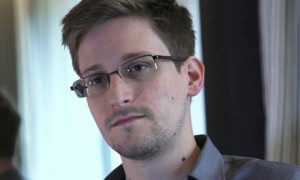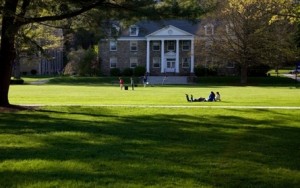He has been called a hero and a villain, a patriot and a traitor. However he will be judged in history, Edward Snowden’s actions have nevertheless caused something of a ruckus for one of the largest intelligence organizations in the United States, the National Security Agency, and has reopened conversation on the ethics and lawfulness of government surveillance.

The leaks obtained by Snowden, a former contractor for the NSA, represent one of the largest breaches in security that the United States government has experienced in its history. Snowden’s critics warn that these leaks will threaten American security and interests and will enable terrorist organizations throughout the globe. On the other hand, privacy advocates say that Snowden has performed an important act of civil disobedience.
The full 58,000 files that Snowden leaked to the Guardian (a British newspaper) and the Washington Post last summer have not, as of yet, been fully revealed. The Guardian’s editor, Alan Rusbridger, reporting to a parliamentary committee investigating the newspaper’s handling of the Snowden leaks, explained that the Guardian has only published one percent of the files and has withheld the rest, mostly on account of the sensitive nature of the information. “I would not expect us to be publishing a huge amount more,” Rusbridger also said to the committee.
Nevertheless, some of the information that Snowden provided is still forthcoming. On Wednesday, the Washington Post published a report that revealed the details of NSA’s cell phone tracking program, in which the agency monitors the data of individuals – wherever they happen to be in the world – using their personal mobile devices. The NSA accomplishes this by tapping into cell towers and tracking the movements of individuals using the signals from their cell phones to the towers. From this information, the NSA can also track the movements of possible associates, called “co-travelers”, if they pass through a number of the same cell tower zones. Furthermore, if monitored for a period of time, a target’s relationships and patterns of movements can also be uncovered using this information.
Though the NSA has said that it has no desire to map everyone’s movements, this is nonetheless the byproduct of tracking down target individuals that the NSA deems as dangerous or potentially dangerous. The Washington Post reports that the NSA is collecting almost 5 billion cell phone records every day throughout the globe, which in turn amounts to 2 trillion per year.
Throughout the course of the “Snowden scandal”, the US government has insisted that these measures are lawful, but they have been challenged by many privacy advocates – seeing a boost in support and attention – who argue that these measures violate civil liberties and privacy of American citizens. Other groups think that Snowden’s actions have put the United States in peril.
The American public remains divided, however, according to a survey put forward by the Huffington Post in late October. According to the survey, 51% of respondents described Snowden as “something of a hero,” while 49% described him as “more of a traitor.”
Who is Edward Snowden and what will his actions prove? Only time will tell.

